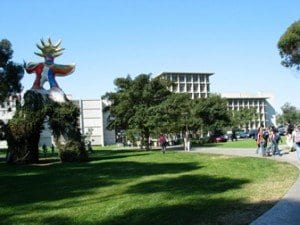 A new chemical could be the answer to treating metabolic disorders such as type 2 diabetes suggests biologists at the UC San Diego.
A new chemical could be the answer to treating metabolic disorders such as type 2 diabetes suggests biologists at the UC San Diego.
Diabetes is a huge concern across the United States, particularly due to obesity. However, there are many other reasons why a person might develop type 2 diabetes.
The chemical does not directly control the glucose production in the liver, it affects the activity of a key protein that regulars the internal mechanisms of our daily night and day lives, out biological clock.
It has been suspected for years that obesity and diabetes walk hand in hand and that they could both be linked to issues with the biological clock. Using this theory, lab mice were used, their biological clocks altered and dealing with issues of obesity and diabetes.
A couple of years ago, a team led by the dean of the Division of Biological Sciences at UC San Diego Steve Kay, made a discovery. The team discovered the first biochemical link between the biological clock and diabetes. Cryptochrome, a key protein that regulates the biological clocks of mammals, insects and plants and it also regulates the glucose production in the liver. They also discovered that in altering the levels of the protein, they could improve the health of the diabetic mice.
Kay and his team discovered a small molecule, one that can be created into a drug, can control the detailed molecular cogs and timekeeping mechanisms of cryptochrome so that it can be repressed by the production of glucose by the liver. Humans, much like mice and other animals have evolved biochemical mechanisms so that a steady supply of glucose can flow to the brain, when we are not active or eating.
“We found that if we increased cryptochrome levels genetically in the liver we could inhibit the production of glucose by the liver,” said Kay.
Kay said. “At the end of the night, our hormones signal that we’re in a fasting state. And during the day, when we’re active, our biological clock shuts down those fasting signals that tell our liver to make more glucose because that’s when we’re eating.”
The cause of diabetes comes from an accumulation of glucose in the blood that can lead to health issues such as blindness, kidney failure, strokes and heart disease. There are two types of diabetes; type 2 diabetes is most common in Americans and type 1 is typically caused by the destruction of insulin producing cells in the pancreas results in the high blood sugar.